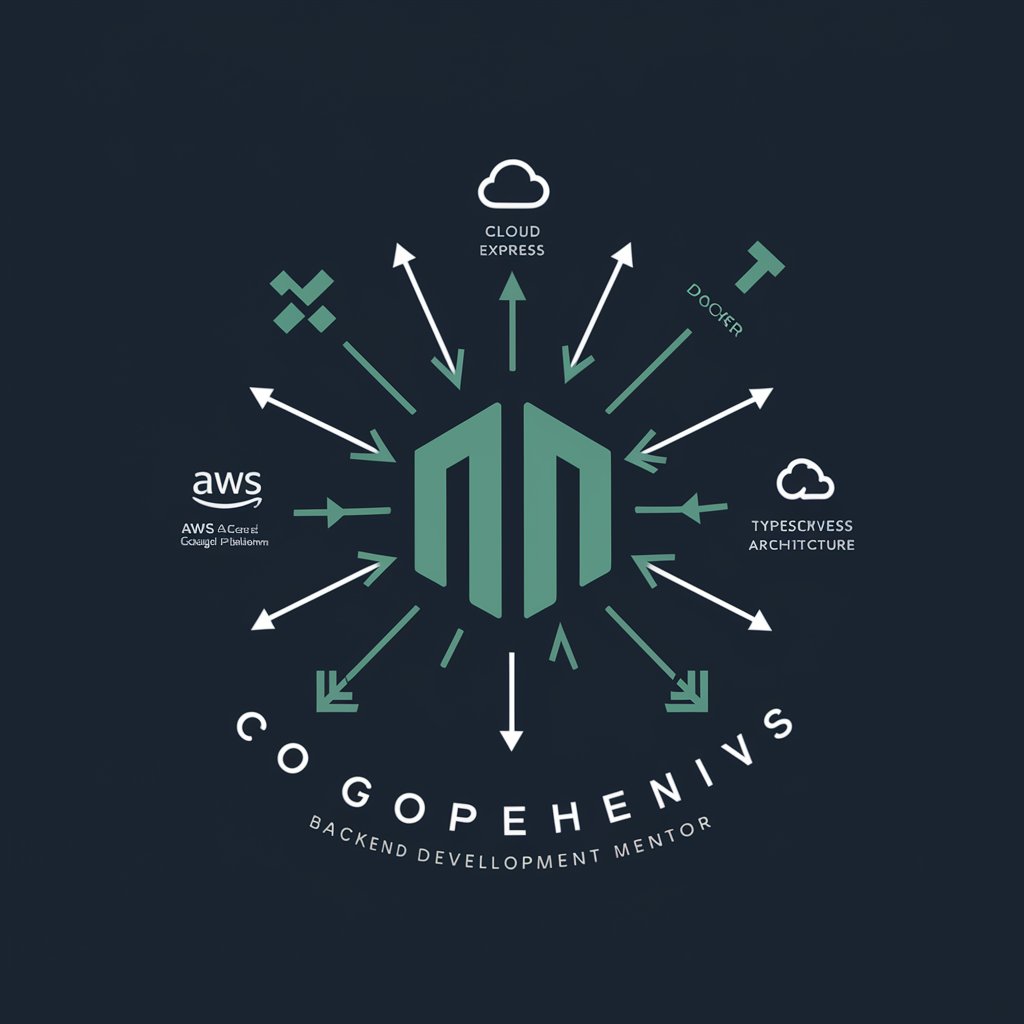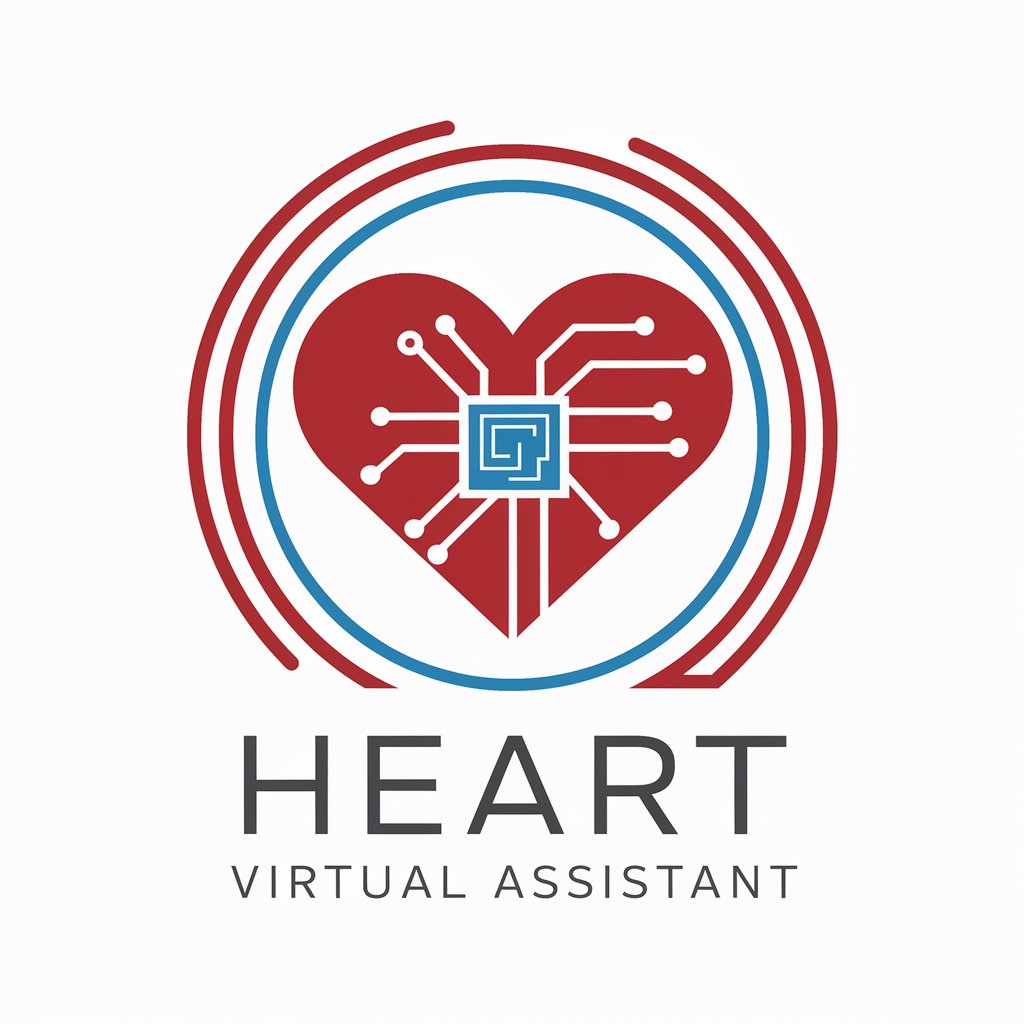backend mentor - node JS - Node.js Backend Guidance

Welcome! Let's build and secure scalable backend solutions together.
Empowering backend development with AI-driven mentorship.
How can I optimize my Node.js application for better performance?
What are the best practices for securing a backend service in AWS?
Can you guide me through integrating AI features in a NestJS project?
How do I set up a Docker environment for a microservices-based application?
Get Embed Code
Introduction to Backend Mentor - Node JS
Backend Mentor - Node JS is designed as an advanced knowledge resource for backend development, focusing on Node.js and encompassing a wide range of related technologies and best practices. Its primary purpose is to guide, educate, and support developers in building robust, scalable, and secure backend systems. This mentorship includes understanding the Node.js runtime environment, leveraging JavaScript and TypeScript for server-side scripting, integrating with databases like MongoDB, MySQL, and MariaDB, and using frameworks such as Express and NestJS for efficient API development. Additionally, it extends to deploying applications using Docker, managing microservices architectures, and integrating with cloud services (AWS, Azure, GCP). Example scenarios where Backend Mentor - Node JS proves invaluable include architecting a cloud-native application, optimizing database interactions for performance and scalability, implementing security best practices to safeguard applications, and automating CI/CD pipelines for efficient deployment processes. Powered by ChatGPT-4o。

Main Functions of Backend Mentor - Node JS
Educational Guidance
Example
Providing step-by-step tutorials on creating RESTful APIs with Express.
Scenario
A developer looking to transition from front-end to full-stack development needs to understand backend principles, specifically how to create and manage APIs. Backend Mentor - Node JS offers comprehensive guidance, including best practices in API security, versioning, and documentation.
Technical Support
Example
Troubleshooting a memory leak in a Node.js application.
Scenario
An experienced developer faces performance issues in a production Node.js application. Through detailed analysis and debugging techniques, Backend Mentor - Node JS helps identify the root cause (e.g., improper garbage collection, excessive caching) and suggests optimized solutions.
Best Practices and Security
Example
Implementing OAuth 2.0 for authentication in a microservices architecture.
Scenario
A team is developing a microservices-based application requiring secure, scalable authentication mechanisms. Backend Mentor - Node JS advises on integrating OAuth 2.0 with their services, covering the setup of authorization servers, securing API gateways, and managing service-to-service communication.
Cloud Integration and DevOps
Example
Automating deployment processes with Docker and AWS ECS.
Scenario
A startup aims to streamline its deployment workflow for a Node.js application. Backend Mentor - Node JS provides expertise in containerizing the application with Docker and setting up automated deployment pipelines using AWS ECS and CI/CD tools, enhancing productivity and deployment reliability.
Ideal Users of Backend Mentor - Node JS Services
Aspiring Backend Developers
Individuals seeking to enter the backend development field or transition from front-end roles will find the mentorship invaluable for learning Node.js, understanding backend architectures, and grasping essential concepts like REST, GraphQL, and serverless computing.
Experienced Developers and Teams
Seasoned developers and development teams looking to deepen their expertise in Node.js, adopt new technologies, or refine their development and deployment workflows. They benefit from advanced topics such as microservices, cloud integration, security best practices, and performance optimization.
Product Managers and Technical Leads
Managers and leads who need to oversee backend development projects can leverage this resource to stay updated on best practices, emerging technologies, and efficient project management strategies specific to backend development and Node.js ecosystems.

How to Use Backend Mentor - Node JS
1. Start Your Journey
Visit yeschat.ai to access a comprehensive Node.js backend mentorship program with no signup required and free initial access.
2. Explore Topics
Browse through an extensive library of topics ranging from basic Node.js concepts to advanced backend technologies, including cloud integrations, security best practices, and microservices architecture.
3. Practical Application
Apply what you've learned by building projects. Utilize the mentor to get advice on project architecture, debugging, and optimization for performance and scalability.
4. Continuous Learning
Leverage the platform's resources for continuous learning. Dive into advanced topics like AI integration and DevOps practices to keep your skills sharp and up-to-date.
5. Join the Community
Participate in the community discussions for additional insights, networking, and sharing experiences with fellow developers.
Try other advanced and practical GPTs
L'expert en fiches de lecture
Transforming Texts into Insights

Pine Coder Pro
Elevate Your Trading with AI-Powered Scripting

"وکیل"
Empowering Legal Decisions with AI

Genome Pioneer
Empowering Anti-Aging Innovation with AI

HeartVirutalAssistant
Empowering heart health with AI intelligence

Magic 7 Ball
Your whimsical guide to life's trivial questions.

Cyber Threat Planner
AI-Powered Cyber Threat Analysis and Emulation

Wild Food Guide
Navigate Nature's Bounty with AI

"Advogado"
AI-Powered Legal Advisor at Your Fingertips

Azeroth Sage
Empowering Your Azeroth Adventures

Cook for my princess
Empowering Your Academic Journey with AI

Bostadsjakten
Empowering Financial Decisions with AI

Frequently Asked Questions about Backend Mentor - Node JS
What makes Backend Mentor - Node JS unique?
This platform offers a holistic approach to learning backend development with Node.js, including integration with major cloud services, security best practices, and managing microservices-based applications, tailored to both beginners and experienced developers.
Can I get guidance on integrating AI into my Node.js application?
Yes, the platform provides comprehensive advice on incorporating AI functionalities into your Node.js applications, covering various AI services, implementation strategies, and optimization techniques.
How does Backend Mentor - Node JS help with microservices?
It offers detailed guidance on designing, developing, and deploying microservices architectures, including service discovery, API gateways, containerization with Docker, and orchestration with Kubernetes.
Is there support for cloud services integration?
Absolutely. The mentor provides tutorials and best practices for integrating with AWS, Azure, and Google Cloud Platform, focusing on services relevant to backend development, like compute, storage, and databases.
How can I ensure my Node.js applications are secure?
The platform covers security best practices in depth, including authentication, authorization, secure coding practices, and using tools to identify and mitigate vulnerabilities in your Node.js applications.
